Introduction
Smart glass, also known as switchable glass or privacy glass, offers a range of benefits and functionalities for residential, commercial, and institutional spaces. However, when considering smart glass installation, it’s essential to understand the factors that contribute to the pricing of this innovative technology. In this blog, we will explore the key elements that influence smart glass pricing and provide insights into the cost considerations for those interested in investing in this cutting-edge solution.
Factors Affecting Smart Glass Pricing
Glass Type and Technology
The type of smart glass technology used significantly affects the pricing. Different technologies, such as electrochromic, suspended particle device (SPD), and liquid crystal, have varying manufacturing processes and material costs. Electrochromic glass, for example, tends to be relatively more expensive due to its complex manufacturing process.
Glass Size and Customization
The size and dimensions of the smart glass panels required for an installation impact the pricing. Larger glass panels typically have higher costs due to increased material and production requirements. Additionally, customization, such as curved or irregular shapes, patterns, or specific glass thickness, may add to the overall pricing.
Complexity of Installation
The complexity of the installation process affects the overall pricing. Factors such as the number of windows or glass surfaces, the need for electrical connections, and any structural modifications required can impact the cost. Installations that involve retrofitting existing structures may also require additional labour and expertise, which can influence the pricing.
Quantity and Project Scale
The quantity of smart glass panels needed for a project and the scale of the installation can impact pricing. Bulk orders or larger projects may provide opportunities for volume discounts or reduced pricing per unit. Conversely, smaller projects may have higher costs due to minimum order quantities or limited economies of scale.
Additional Features and Controls
Certain additional features and controls can contribute to the pricing of smart glass. For example, integrating automation systems, remote control functionality, or smartphone apps for controlling the glass transparency may incur additional costs. These features enhance the user experience but can affect the overall pricing of the smart glass solution.
Supplier and Location
The choice of supplier and the geographical location can influence smart glass pricing. Different suppliers may offer varying pricing structures based on factors such as manufacturing capabilities, brand reputation, and market demand. Additionally, regional factors, including labour costs and local regulations, can impact the overall pricing.
Cost Considerations for Smart Glass Installation
Budget and Project Requirements
Establishing a clear budget and understanding the specific requirements of the project are crucial for evaluating smart glass pricing. Determine the desired features, sizes, and functionalities needed to meet project goals, and allocate a budget accordingly.
Comparative Analysis
Conduct a comparative analysis of different smart glass suppliers and their offerings. Request quotes and compare not only the pricing but also the quality, warranty, and customer reviews. This analysis will help identify the supplier that best aligns with the project’s budget and requirements.
Consultation and Professional Advice
Engage with smart glass professionals who can provide expert advice and guidance. Consultation services can help assess project needs, evaluate pricing options, and identify any potential cost-saving measures without compromising quality or functionality.
Long-Term Cost Benefits
Consider the long-term cost benefits of smart glass when evaluating pricing. Smart glass offers energy-saving capabilities, improved privacy control, and enhanced aesthetics, which can result in reduced energy costs and increased property value over time. Assessing these long-term benefits can help justify the initial investment in smart glass installation.
Conclusion
Smart glass pricing is influenced by various factors, including the glass type and technology, customization requirements, installation complexity, project scale, additional features, and supplier considerations. Understanding these factors and conducting a thorough evaluation of project requirements and budget constraints will help in making informed decisions. Smart glass installation offers a modern and functional solution for spaces, and although pricing considerations are essential, it’s important to assess the long-term benefits and the value it brings to the environment it is installed in.
Who We Are
Tecdur is the leading manufacturer of smart glass for the UK and Ireland. Tecdur Switchable Glass provides the best clarity, lowest power consumption and lowest haze currently available. We can offer a wide range of specifications to meet project requirements with our switchable glass, cost is dependent on specification, application and design. Please get in contact with us to discuss further.
Please visit our portfolio for a look at completed projects. Keep up to date on our LinkedIn Showcase page


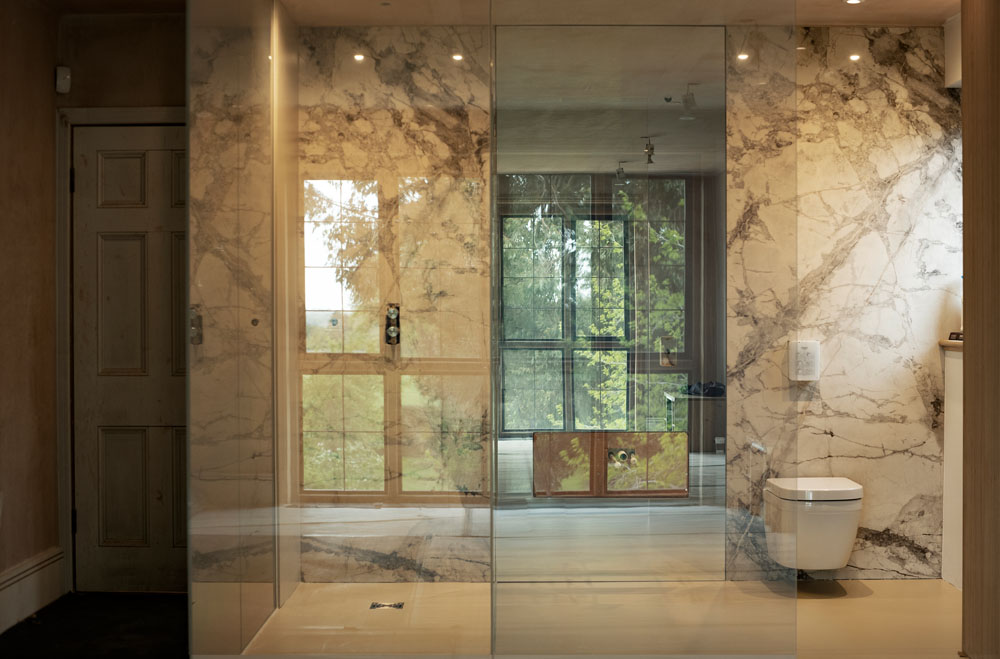
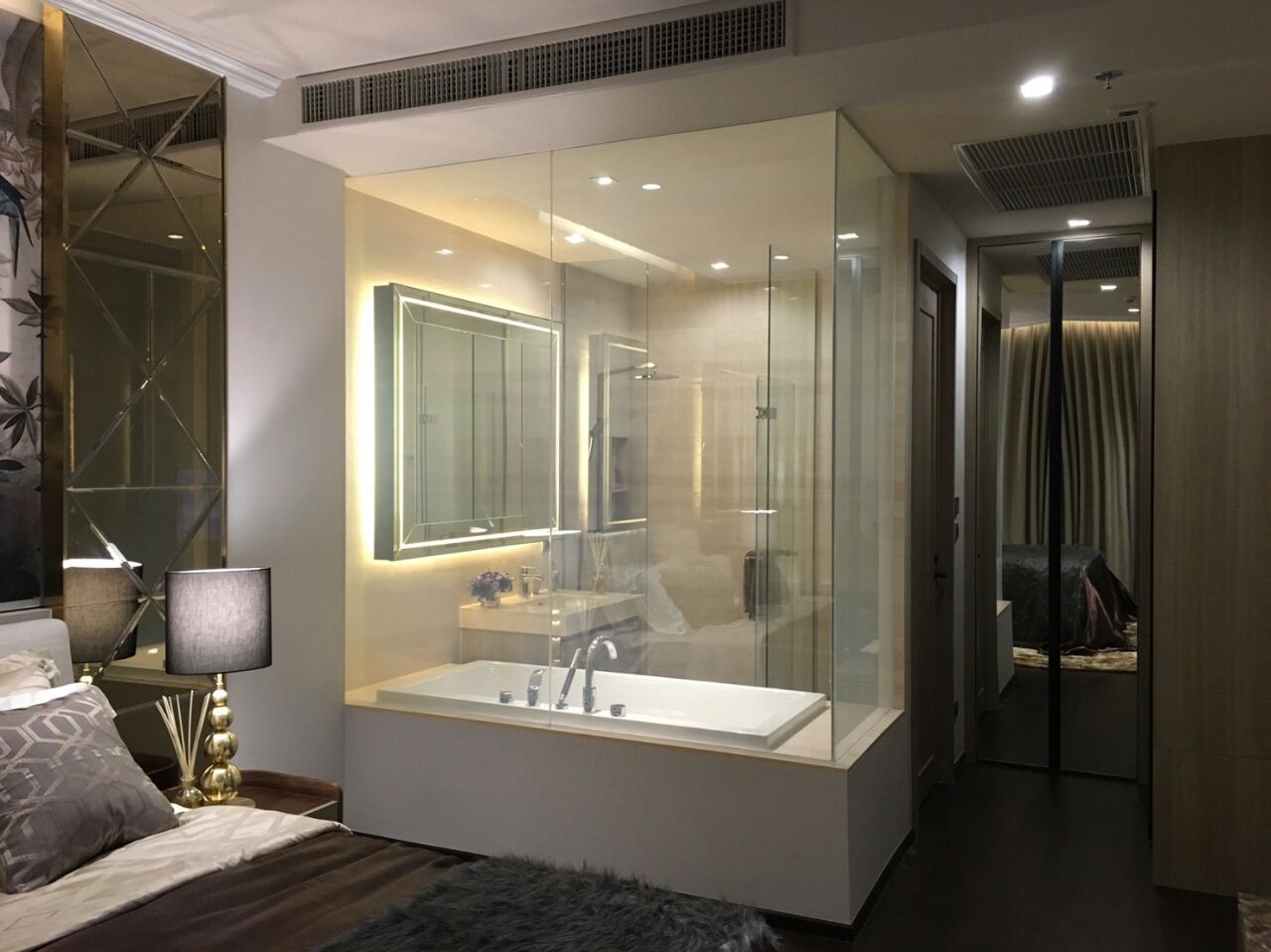
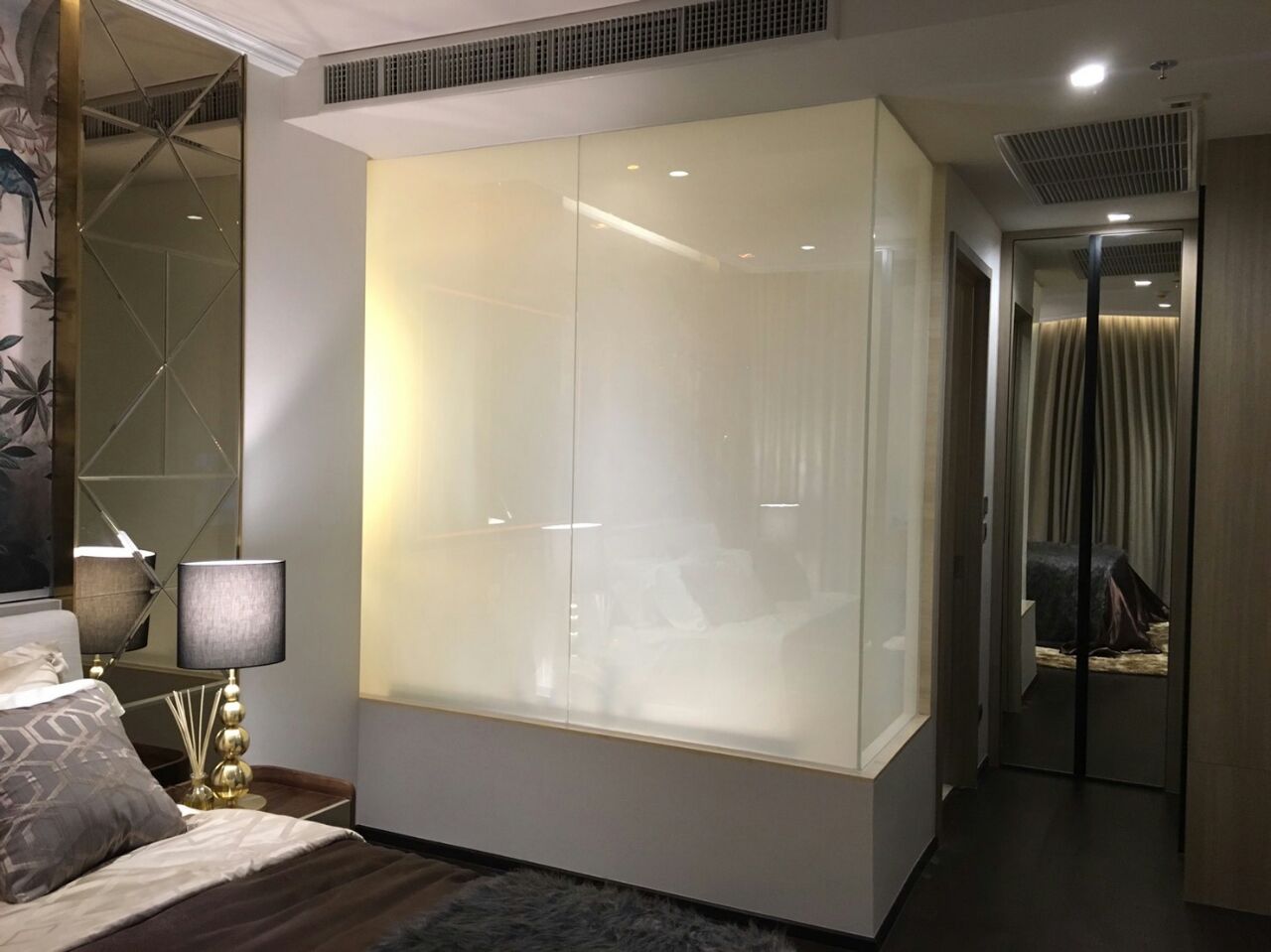
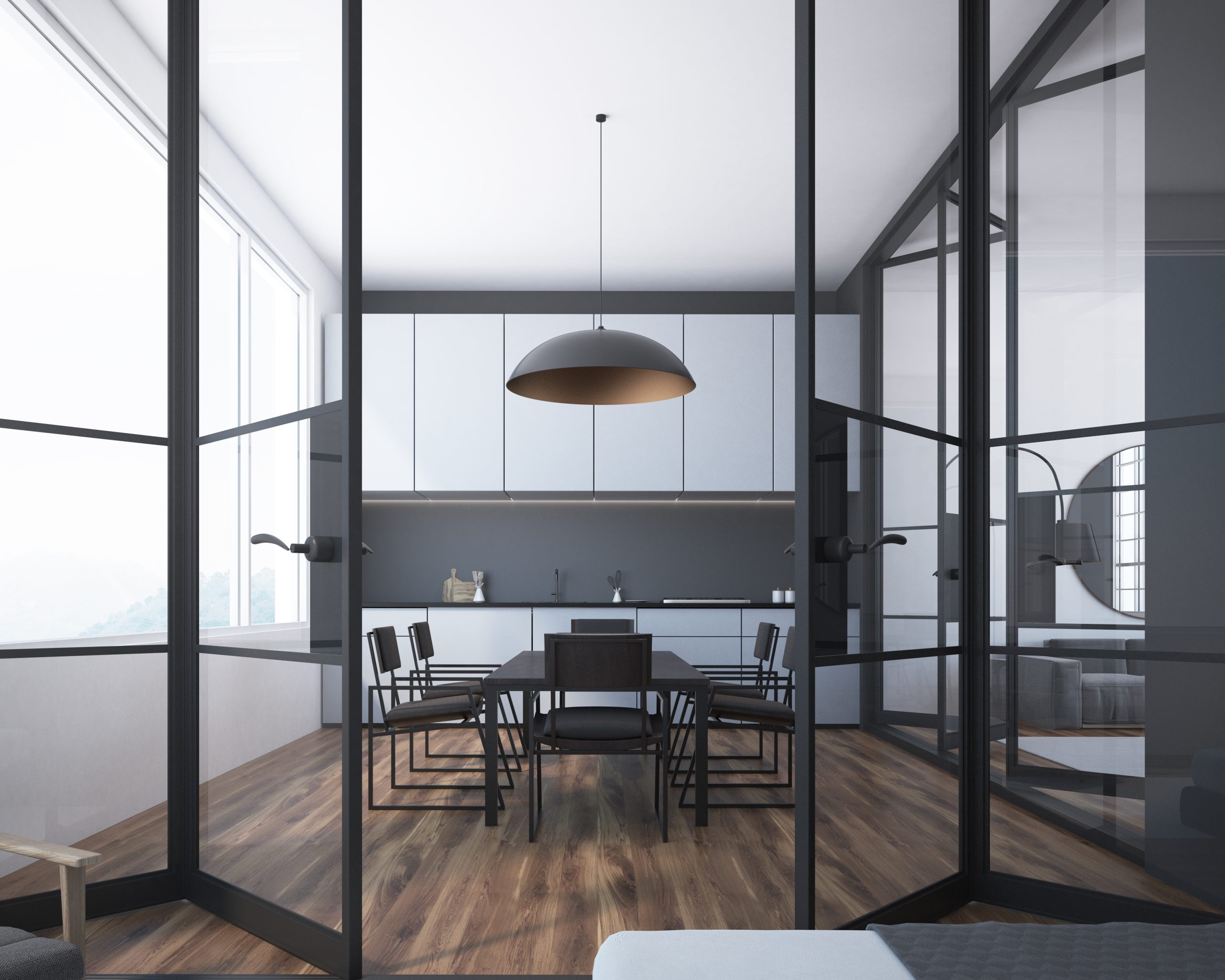
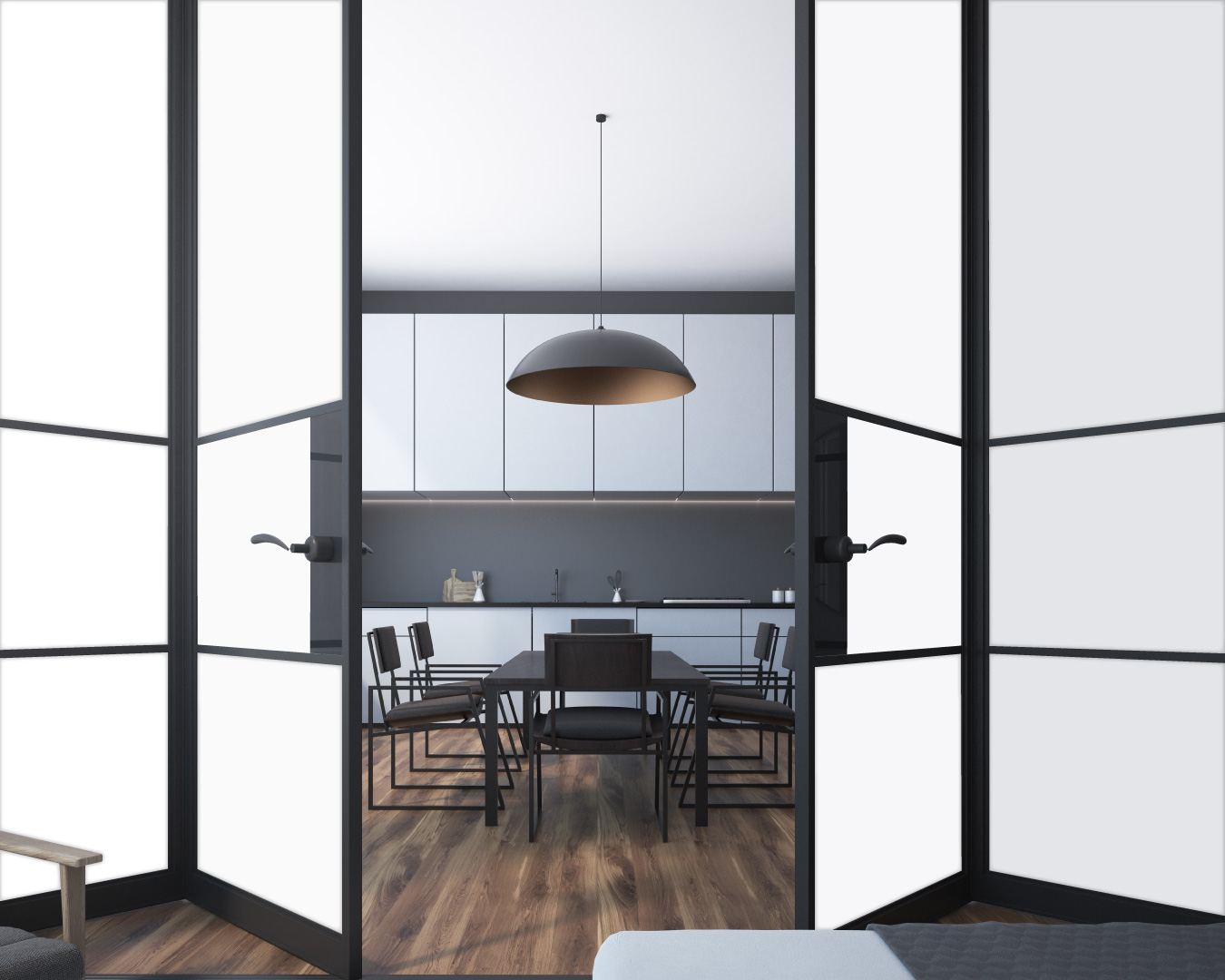
Frequently asked Questions
Our privacy glass works by utilising advanced PDLC (Polymer Dispersed Liquid Crystal) film. When an electrical current is applied, the liquid crystal molecules align, allowing light to pass through, making the glass transparent. When the current is switched off, the molecules mis-align, causing the glass to turn opaque or translucent, providing privacy.
Smart glass, also known as switchable glass or privacy glass, is a type of glass that can change its transparency or opacity on demand. It utilises advanced technology to switch between transparent and opaque states, providing privacy control and energy efficiency benefits.
Smart glass offers several benefits, including privacy control, energy efficiency, and enhanced aesthetics. It allows for on-demand privacy in spaces, reduces energy consumption by regulating natural light, and adds a modern and sophisticated touch to the environment.
Yes, smart glass can be retrofitted into existing windows. However, it is important to assess the compatibility of the window frames and consult with professionals to ensure a proper fit and installation.
Yes, most types of smart glass require electricity to switch between transparent and opaque states. Once the desired state is achieved, it can be maintained without continuous power supply.
Smart glass generally requires minimal maintenance. Regular cleaning with non-abrasive materials and mild glass cleaners is usually sufficient to keep it in good condition. However, the maintenance costs may vary depending on the specific type of smart glass installed and its usage.
Yes, smart glass can be controlled manually through switches or buttons. However, it can also be integrated with automation systems, allowing for remote control, scheduling, and synchronization with other smart devices.




